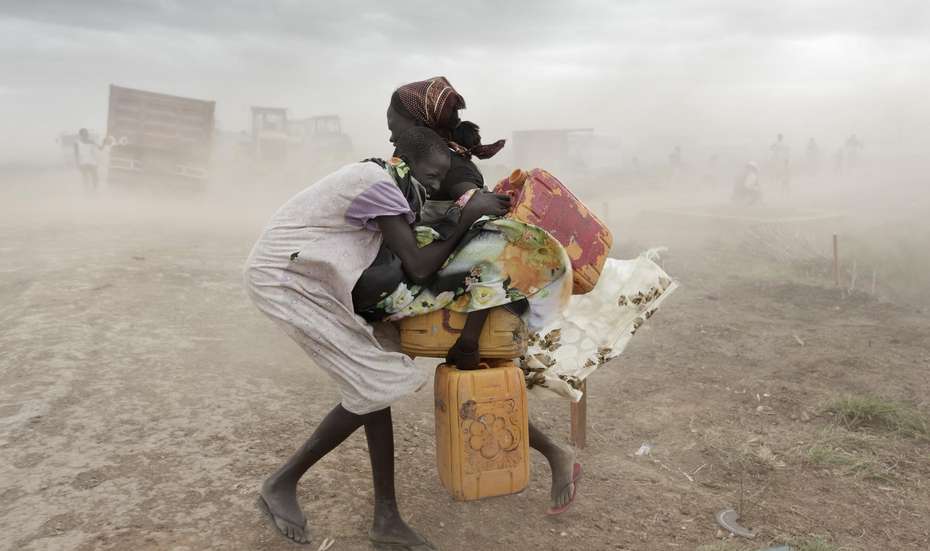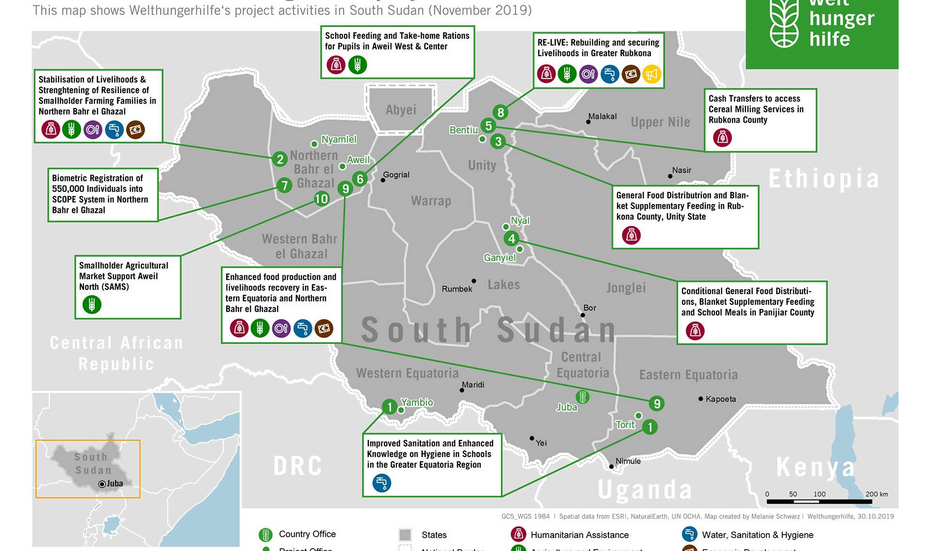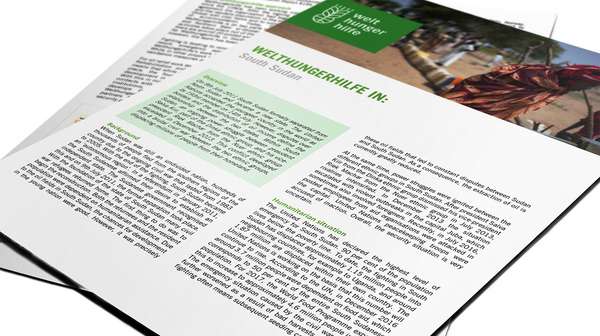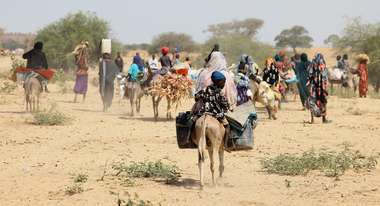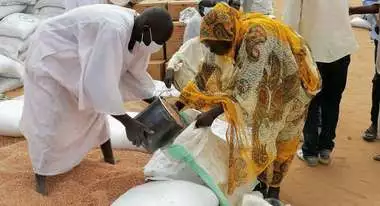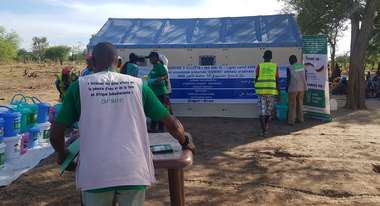Facts and background information about the situation in South Sudan
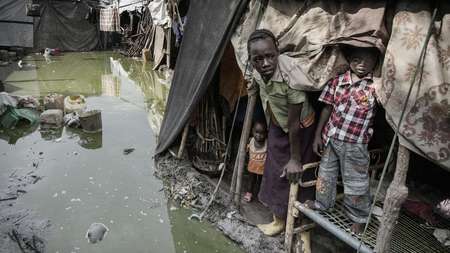
Emergency Aid in South Sudan
Suffering, displacement and hunger have been constants in South Sudan for years. However, the current situation could hardly be more threatening. Several million people can no longer provide for themselves due to the ongoing violence. The entire region of the Horn of Africa is also suffering from a severe drought. Welthungerhilfe has been active in famine-afflicted Unity State for years and is supplying people with food.
Effects of Ongoing Crisis in South Sudan
- More than 4 million people have left their homes, 2.2 million have been displaced within their own country, and 2.3 million have fled to neighbouring countries (UNHCR, July 2023). They are seeking refuge in safe areas or refugee camps. However, the conditions there are poor due to a lack of tents, water and hygiene. Most of the refugees depend on food aid supplies.
- 7.7 million people face acute food insecurity (WFP)
- Several thousand cases of cholera have been recorded since mid-2016, largely in the Nile region. In February 2018, South Sudan declared the end of its longest and largest cholera outbreak.
- More than 100 aid workers have been killed since the start of the conflict in December 2013.
Hope of a peaceful life in South Sudan was shattered by violent unrest in late 2013. Only two years after Sudan achieved independence, armed confrontations between followers of President Kiir and of former Vice-President Machar claimed tens of thousands of lives. Since then, conflict, violence and displacements have been the order of the day.
People are afraid, many have fled their homes. New episodes of severe violence continue to worsen the situation. The conflict parties are not putting down their weapons even for important occasions such as sowing time. The result: Many fields could once again not be cultivated last year – in a country in which 90% of the population lives from agriculture. The desperately-needed harvests often fail. Employment options and other sources of income are poor. Food prices are instable, the people spend the majority of their money on food.
The people who suffer most are civilians
The great hardship in South Sudan was caused by violence. Since the 1950s, locals have experienced an almost uninterrupted sequence of armed conflicts. The cycle of hunger, violence and suffering can hardly be broken without structural changes. Ordinary people, however, are suffering the most.
How Welthungerhilfe supports people in South Sudan
- Emergency aid: Welthungerhilfe is providing refugees in camps with emergency shelters, drinking water, hygiene measures and food.
- Agricultural development: Together with the population, Welthungerhilfe is building dykes and planting trees in order to better control the annual flooding, thereby securing the harvest. Smallholders learn which cultivation methods improve their crops, receive seeds and agricultural tools and support for the physical and medical care of their livestock.
- Education: In conjunction with Alliance2015, schools and centres for small children are being built.
Welthungerhilfe is working with the World Food Programme (WFP), the Federal Ministry for Economic Cooperation and Development (BMZ) and the Deutsche Gesellschaft für Internationale Zusammenarbeit (GIZ) GmbH in South Sudan.




